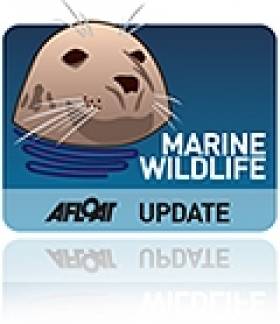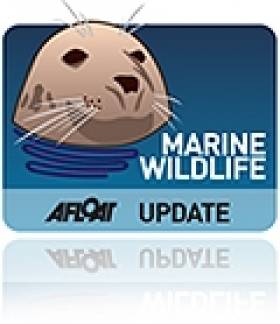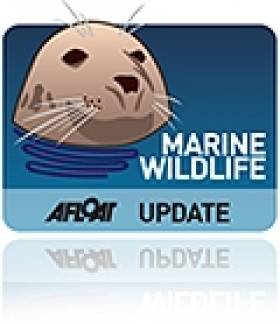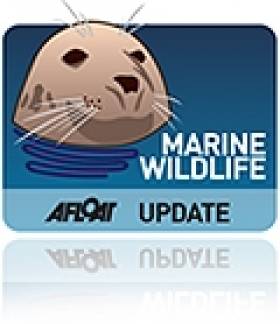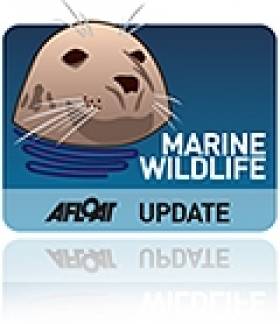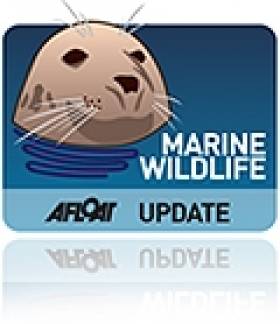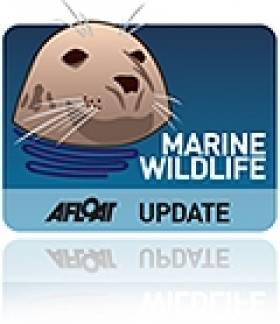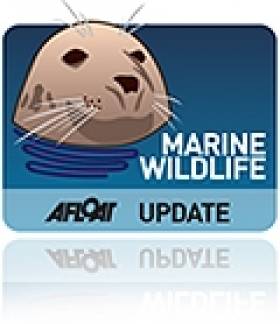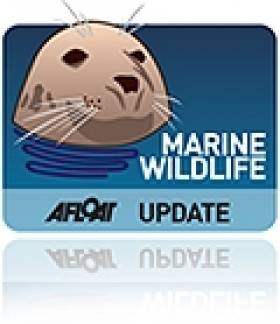Displaying items by tag: Irish Seal Sanctuary
#MarineWildlife - The Irish Seal Sanctuary has told Radio Kerry that it is no longer looking for the culprits behind the shocking sea beheadings in Dingle last summer.
As reported on Afloat.ie one year ago, staff at the Dingle Wildlife and Seal Sanctuary were sickened by the gruesome sight of two baby seal heads nailed to signs outside the facility.
Johnny Woodlock of the Dingle Seal Sanctuary later claimed that the horrific discovery was part of a "swing in activity in recent months" where dead seals were found on beaches around the country with "apparent gunshot wounds".
However, the founder of the Irish Seal Sanctuary has said that the group is no longer actively seeking the perpetrators of the barbaric Dingle incident.
"It's not a high priority for me any longer," said Brendan Price of the Irish Seal Sanctuary, who added that rewards for information are "posted from time to time when incidents like this have occurred".
Price continued: "I wouldn't be looking for some kind of public atonement. I don't think it's helpful to keep rewards up any longer, and I'm sure that it will not happen again."
Four Decapitated Seals In Tramore Add To Disturbing Total
#MarineWildlife - The Irish Seal Sanctuary is calling for immediate action by the National Parks and Wildlife Service (NPWS) after the discovery of four more seal carcasses in Tramore on Friday 21 December.
The four decapitated marine mammals reported by the Irish Examiner add to the eight found dead in Wexford and Waterford over recent days, bringing to 12 the total for the week.
Irish Seal Sanctuary spokesperson Johnny Woodlock told the Examiner: "It's an evolving situation down there. Only last night, I heard there were a few dead porpoises washed in. They are also a protected species.
Woodlock said yesterday (22 December) that he was still awaiting photographs in order to confirm the number of dead seals.
The disturbing turn of events echoes the reported "swing of activity" in seal fatalities around Ireland earlier in the year - the most horrific of these being the shocking scene of two baby seal heads nailed to a sign outside the Dingle Wildlife and Seal Sanctuary in June.
Renewed Concerns For Seals After Carcasses Found In South-East
#MarineWildlife - The Irish Seal Sanctuary has raised concerns after eight seals were found dead in Wexford and Waterford in recent days, as RTÉ News reports.
A shocking total of six carcasses were discovered near Fethard-on-Sea alone, while one apiece were found near Dunmore East and in Tramore - the latter reportedly decapitated.
The news comes just a few months after Johnny Woodlock of the Dingle Wildlife and Seal Sanctuary warned of a "swing of activity" in seal fatalities around Ireland earlier this year.
The most horrific of these incidents was the grisly scene of two baby seal heads nailed to a sign outside the Dingle wildlife sanctuary, accompanied by graffiti daubed in red paint reading 'RIP Cull' - presumed to be a reference to local fishermen's urging for a reduction of seal numbers in the area.
More recently, reports from Castlerock in Co Derry suggested that a dead seal found on the beach suffered a gunshot wound to the head.
All seals in Ireland are protected under national and EU law.
The Irish Seal Sanctuary is currently urging the National Parks and Wildlife Service to launch an investigation into these latest incidents, and is appealing to the public for information on these or other seal deaths.
#MARINE WILDLIFE - The Limerick branch of Birdwatch Ireland is seeking volunteers to assist in rescuing birds from oil spillages in the Shannon Estuary.
A report in the Limerick Post recounts a recent meeting at Shannon Rowing Club, where Birdwatch Ireand highlighted the impact on the environment and marine wildlife from both major and minor oil spills.
The meeting also discussed the role that local birdwatchers can play in determining crucial spillage incident response times.
A training exercise at Poulnasherry Bay is being organised for next month using equipment donated to the Irish Seal Sanctuary, preceeded by a similated planning exercise and "on-the-ground response".
The Irish Seal Sanctuary will also provide opportunities for training in the rehabilitation and cleaning of spillage-affected birds.
The Limerick Post has much more on this story HERE.
Garda Investigates Waterford Seal Shootings
#MARINE WILDLIFE - Newstalk reports that gardaí are investigaing the shooting of seals on a Waterford beach.
As previously reported on Afloat.ie, fears are mounting of an illegal cull of marine wildlife in the area after a seal and a dolphin were found dead from gunshot wounds within a day of two seals being discovered with similar wounds.
All four animals were found along the same stretch of Tramore Beach late last month.
A spokesperson for the Irish Seal Sanctuacy pointed the finger at an illegal cull allegedly carried out by local fishermen.
The Irish Wildlife Trust has welcomed the Garda investigation into the incidents, and has called on the public to report any relevant information they may have.
Fears Over Illegal Cull as Seals, Dolphin Die on Waterford Beach
#MARINE WILDLIFE - Fears are growing of an illegal cull of marine wildlife after a seal and dolphin were discovered dead on a Waterford beach - just hours after two seals were found dying from bullet wounds in the same location.
TheJournal.ie reports that the wounds on the two animals found on Tramore Beach on Thursday are also believed to be from gunshot.
Two grey seals were euthanised the previous evening after they were discovered gravely injured with "horrific" wounds on the same beach.
A spokesperson for the Irish Seal Sanctuacy (ISS) has called for a post-mortem of the animals to determine the exact cause of death - but pointed the finger at an illegal cull allegedly carried out by local fishermen.
"We’re not against a properly regulated cull," said the ISS's Johnny Woodlock, "but it’s the guy who goes out with a shotgun and takes potshots, that’s what we’re against.”
TheJournal.ie has more on the story HERE, including an image that many may find distressing.
Seriously Ill Seal Pup Now In Recovery
#MARINE WILDLIFE - A harbour seal pup found in a serious condition in Balbriggan last week is new recovering in the care of the Irish Seal Sanctuary.
Colin, as he has been named by ISS volunteers, was discovered on Kings Beach suffering from blood loss and breathing problems, the Fingal Independent reports.
An ISS spokesperson remarked that it was "very unusual" to find harbour seal pups this late in the year, and in an area dominated by colonies of grey seals.
Thanks to medicine donated by the Dogs Aid veterinary clinic in north Dublin, Colin is now "making great progress" though full recovery will take some time.
The seal pup will remain in the care of the ISS until he is fit enough to be returned to Balbriggan for release.
Wildlife Groups Pledge Union With Oil Spill Response Plan
#MARINE WILDLIFE - The Evening Herald has highlighted the work of a new union of wildlife protection groups which is training volunteers to act the event of serious environmental threats to Ireland's sea bird population.
Wildlife rescue volunteer Pauline Beades from Garristown in north Co Dublin has been working with Ireland's animal groups to change the official approach to wildlife - particularly birds - that get caught in oil spills.
The Irish Seal Sanctuary, Birdwatch Ireland, the ISPCA, the Irish Whale and Dolphin Group (IWDG), Coastwatch and Irish Wildlife Trust have written a joint "letter of comfort" for the Irish Coast Guard, which is the State body charged with dealing with coastal oil spills.
The groups have pledged to work together in the event of any oil spill that involves a threat to marine wildlife.
Their response plan involves an initial wave of volunteers walking beaches to gather affected animals and providing first aid, followed by transfering them to veterinarians in specialised field hospitals, as well as facilities for longer-term care.
Recently Beades helped train volunteers in Limerick, who also attended lectures and demonstrations from visiting wildlife rescue experts from Europe to prepare for any potential sea-borne wildlife emergency.
Concerns Over Seal Deaths in Donegal
Seven dead seals washed up in Donegal are believed to have died of natural causes - but concerns over a pattern of seal deaths nationwide remain.
As the Donegal Democrat reports, the seven grey seals - which are a protected species - were found beached along with a dead dolphin in the Rosberg area.
A ranger with the National Parks and Wildlife Service confirmed that none of the marine animals had been shot.
But Pauline Beades of the Irish Seal Sanctuary said the find was just one in a series of reports of "strange" seal deaths around the country.
“You don’t find three, four, five animals dead on a beach," she said. "I would be very concerned that this is not a normal occurrence.”
It is not yet known if a post-mortem will be carried out in the dead seals, but members of the public are encouraged to report any similar finds as the thocine distemper virus has been responsible for seal deaths in the past.
Beades said that grey seals are now having their young, and asked the public to keep an eye out for seal pups and report anything that looks suspicious in the area.
The Donegal Democrat has more on the story HERE.
Seal Sanctuary Pulls Out of Courtown
The Irish Seal Sanctuary (ISS) is leaving Courtown after being unable to reach agreement on the lease for its premises.
Founder and co-director Brendan Price told The Irish Times last Monday that the group had been "locked out" of its facility in the Co Wexford town for over a month after a dispute with its landlords Gorey-Courtown Forest Park.
It was then confirmed by the Gorey Guardian on Monday evening that the ISS would no longer operate out of Courtown due to "irreconcilable differences" over the signing of the lease.
"The lease they offered us was impossible for us to sign," said ISS spokesperson Pauline Beades. "It was only an 11-month lease. To have consistency of operations we had to have longer than that."
The ISS only moved to Courtown last year at the invitation of the Forest Park board, which invested €250,000 in the premises.
Seal pups in the care of the sanctuary will now have to be transferred to facilities in Dingle, Portaferry in Co Down and Cornwall.
The Irish Times and Gorey Guardian have more on the story HERE and HERE.


























